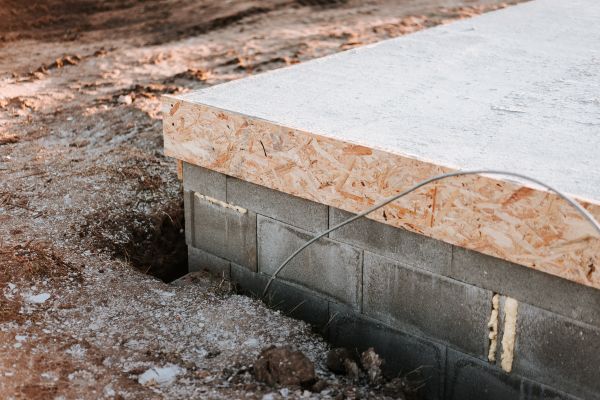Innovative Living: The Rise of Prefabricated Mobile Houses
Prefabricated mobile houses are reshaping the landscape of modern living. These modular structures combine flexibility with sustainability, offering efficient solutions for housing challenges. They are not only cost-effective but also adaptable to various environments. From urban settings to rural landscapes, their appeal continues to grow. This article explores the technology, benefits, and future of prefabricated mobile houses, shedding light on why they are becoming a popular choice for homeowners.
The Technology Behind Prefabricated Mobile Houses
Prefabricated mobile houses are at the forefront of modern architectural innovation. Engineered for efficiency, these homes are manufactured off-site and assembled on location, allowing for rapid construction times. The application of advanced materials and sustainable practices significantly enhances their energy efficiency. Notably, prefabricated mobile houses often incorporate eco-friendly insulation and solar panels, reducing their overall carbon footprint. This technological approach not only saves time but also minimizes waste. Furthermore, the factories that produce these homes utilize precision techniques, ensuring high-quality construction standards. With increased consumer awareness about environmental issues, the popularity of prefabricated mobile houses is likely to rise. Overall, the intersection of technology and sustainability in prefabricated mobile houses presents a compelling solution for the future of housing.
Economic Advantages of Choosing Prefabricated Mobile Houses
The economic benefits of prefabricated mobile houses are substantial. Firstly, the lower construction costs make them accessible to a broader demographic, catering to both first-time buyers and investors. By reducing labor hours due to streamlined production, homeowners can see significant savings. Additionally, the quick setup time results in lower overall project costs. Evidence suggests that prefabricated mobile houses require less maintenance over their lifespan, increasing long-term investment value. The ability to personalize these homes also appeals to buyers, as they can choose layouts and designs that fit their lifestyles. Consequently, prefabricated mobile houses do not just represent a financial decision; they embody a modern shift towards more affordable living solutions. In summary, the economic advantages associated with prefabricated mobile houses are compelling, making them an attractive option for many consumers.
Social Impact of Prefabricated Mobile Houses
The social implications of adopting prefabricated mobile houses are profound. These homes offer a viable solution to housing shortages, particularly in urban areas where space is limited. By providing affordable housing options, they contribute to community development and social stability. Prefabricated mobile houses also support diversity in housing types, catering to various lifestyles ranging from minimalist living to larger family accommodations. The ability to relocate these homes adds a layer of flexibility, appealing to a transient workforce or families that anticipate moving for job opportunities. Additionally, the trend of communal living is enhanced through the modular nature of prefabricated mobile houses, allowing for the creation of eco-villages or purposeful communities. Therefore, the social impact of prefabricated mobile houses extends beyond mere structures; they can foster connection and community cohesiveness. Ultimately, these homes represent a shift toward inclusive living conditions for diverse populations.
User Experience with Prefabricated Mobile Houses
Users of prefabricated mobile houses often express satisfaction with the functionality and comfort of these homes. One primary advantage is their customizable nature; homeowners can select features and designs that meet their specific needs. Included amenities such as modern kitchens, spacious living areas, and energy-efficient appliances enhance overall living experience. Additionally, many users appreciate the aesthetic appeal of modern prefabricated mobile houses, which often defy traditional housing styles. The integration of technology, such as smart home systems, further elevates the user experience. Importantly, living in a prefabricated mobile house often promotes a lifestyle of reduced clutter and simplified living, appealing to those seeking minimalism. Beyond personal preferences, the community aspect of these homes contributes to a fulfilling living environment. In conclusion, the user experience with prefabricated mobile houses showcases their adaptability and potential to create comfortable living spaces.
The Future of Prefabricated Mobile Houses
Looking ahead, the future of prefabricated mobile houses appears promising. As technology continues to advance, innovations in building materials and automation will likely improve efficiency and affordability. Moreover, growing concerns regarding environmental sustainability will drive demand for eco-friendly housing solutions like prefabricated mobile houses. Potential developments in urban planning may facilitate the integration of these homes into city landscapes, promoting smart growth and sustainable living. Additionally, a shift in societal values toward flexibility and mobility will influence the design and function of future prefabricated mobile houses. Governments may also encourage initiatives supporting affordable housing through legislation and funding for prefabricated solutions. Ultimately, the trajectory of prefabricated mobile houses points toward a blending of technology, sustainability, and community-focused living.
Conclusion: A New Era for Housing
In summary, prefabricated mobile houses are redefining the possibilities of modern living. With significant technological advancements and an increasing societal focus on sustainability, these homes are not merely a trend, but a viable solution to contemporary housing challenges. The economic, social, and user benefits associated with prefabricated mobile houses position them well for the future. As more individuals and families seek innovative, flexible living options, prefabricated mobile houses may become the standard choice for smart housing solutions.
